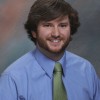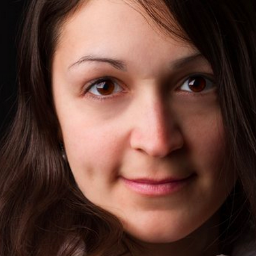Dear (future) self, I imagine that you’re busy right now. Like really busy. Like the coffee-driven, adrenaline-fueled, sleep-deprived kind of busy that you experienced to a lesser degree in medical school except now you’re actually expected to care for patients. Of course, by “care for patients,” I mean “avoid doing dumb things to patients.” A terrifying thought, the burden of patient care, but I’m sure you’re learning and becoming more confident by the day. Why, …
Recent fourth-year matcher (and in-Training editor) Francis Dailey from the Saint Louis University School of Medicine gives us his advice for surviving and succeeding in medical school. 1. Tell us about yourself: Where are you from? What is your undergraduate degree and where did you receive it? Did you do anything between undergraduate and medical school? Francis Dailey: I am from Kansas City, Missouri. I went to Rockhurst University in Kansas City for undergrad, and …
I am the kind of person who can become interested in anything. When it came to thinking about a medical specialty, I was pretty open-minded from the get-go. That said, I grew up talking about the brain with my dad, a neuropsychologist. He would tell us fascinating stories about patients who had problems with different aspects of their cognition because of traumatic brain injuries that they had suffered. My sister and I grew up wearing helmets for everything — ice skating, tricycle-riding, you name it. Any activity in which you could potentially bump your head meant that we were wearing helmets. I guess in a way I was destined to be a neurologist — an interest in the brain was part of my DNA.
How can doctors-in-training prioritize human connection with their patients, especially during beginning and end-of-life experiences? Ellie, a fourth-year medical student in New York heading to Santa Rosa, California for a family medicine residency, reflects on what she can offer — and gain — from being present with patients during birth and death.
Recent fourth-year matcher (and in-Training writer) John Dougherty of the Feinberg School of Medicine provides his expertise on how to succeed — and stay sane — in medical school and beyond: 1. Tell us about yourself: Where are you from? What is your undergraduate degree and where did you receive it? Did you do anything between undergraduate and medical school? John Dougherty: I’m from Valparaiso, Indiana, and went to Northwestern for my undergraduate and medical …
Recent fourth-year matcher (and in-Training editor) C. Emily Lu of the Pritzker School of Medicine in Chicago, IL gives us her expert advice on succeeding in medical school and beyond. 1. Tell us about yourself: Where are you from? What is your undergraduate degree and where did you receive it? Did you do anything between undergraduate and medical school? C. Emily Lu: I grew up in Wisconsin, but have spent most of my adolescent andadult …
Becoming a doctor takes time, but those outside of medicine do not always realize how convoluted the process can be. Central to the perversion is the National Resident Matching Program (or “the Match”). After college and the two years of classroom-based training in medical school, students are ushered into clinical training through third year core rotations in predetermined specialties. In the spring of their third year, students must decide on their career specialty, often without …
Buckle up — the interview trail for residency is a bumpy ride. It is time consuming, costly and stressful. There are things you should know beforehand so it won’t be so overwhelming. First things first, submit your ERAS application. It’s crickets after that. Then, a barrage of emails come soliciting you for an interview spot. Depending on the specialty and program you apply to, there may only be two or three interview dates offered. You …
Every current fourth-year medical student in the country marked March 17, 2014 and March 21, 2014 on their calendars a long time ago. The first date tells students if they matched into residency and if they will begin their training program this July. The second date tells students where they will ultimately live, breathe and work for the next three to seven years as a member of the hospital’s housestaff. My personal journey to March …
Everyone knows that the hard work, sleepless nights and early mornings fueled by gratuitous amounts of coffee don’t end after you graduate medical school. Instead, you are force-fed an even larger dose of the same as you navigate your first year of residency. The very prospect can spark anxiety and concern in even the most confident. Luckily, the wisdom of those who have gone before is there to prove that it won’t be as terrible …
Competition since time immemorial has forged the spirit to excel. It has driven us to learn, to evolve, to survive. In every aspect of life, from sports to politics to education, competition plays its part. After all, it was competition which put man on the moon. So naturally, medicine, and more precisely medical education, also has competition. All of the examinations, tests and everyday learning involve some form of competition. Competition motivates us to learn …
Well ladies and gents, it is that time of year again. The temperatures are getting cooler, the leaves are falling off the trees, and for thousands of fourth-year medical students, myself included, it is residency application and interview season. Fourth year year is a special time for all medical students. It means we are but mere months from achieving those oh-so-special added letters at the end of our names. It means no longer introducing yourself …
 Deke Barron (2 Posts)
Deke Barron (2 Posts)Contributing Writer Emeritus
Lincoln Memorial University DeBusk College of Osteopathic Medicine
Deke Barron is a Class of 2014 medical student at Lincoln Memorial University DeBusk College of Osteopathic Medicine. He has a master's in biomedical sciences from William Carey University and a bachelor's in cellular, molecular, and systems biology from Berea College.
He likes pretty much any sport and long walks on a beach (no, not really). Deke's medical interests include family medicine and sports medicine, as well as rural medicine. Deke is very excited to join the in-Training team, and he would like to thank his great friend Brittney O'Grady (http://foodieuncensored.blogspot.com) for inspiring him to start writing again.





